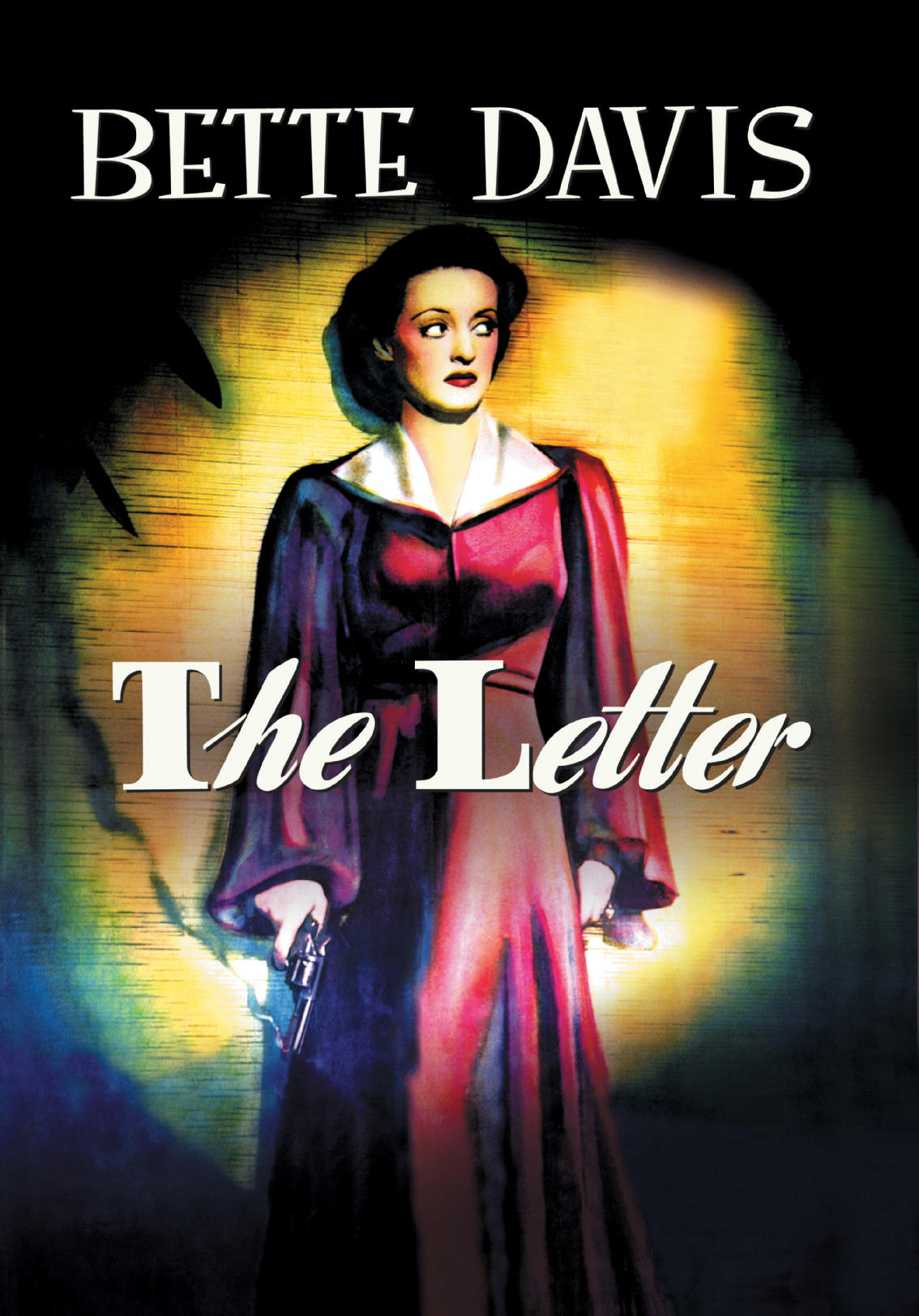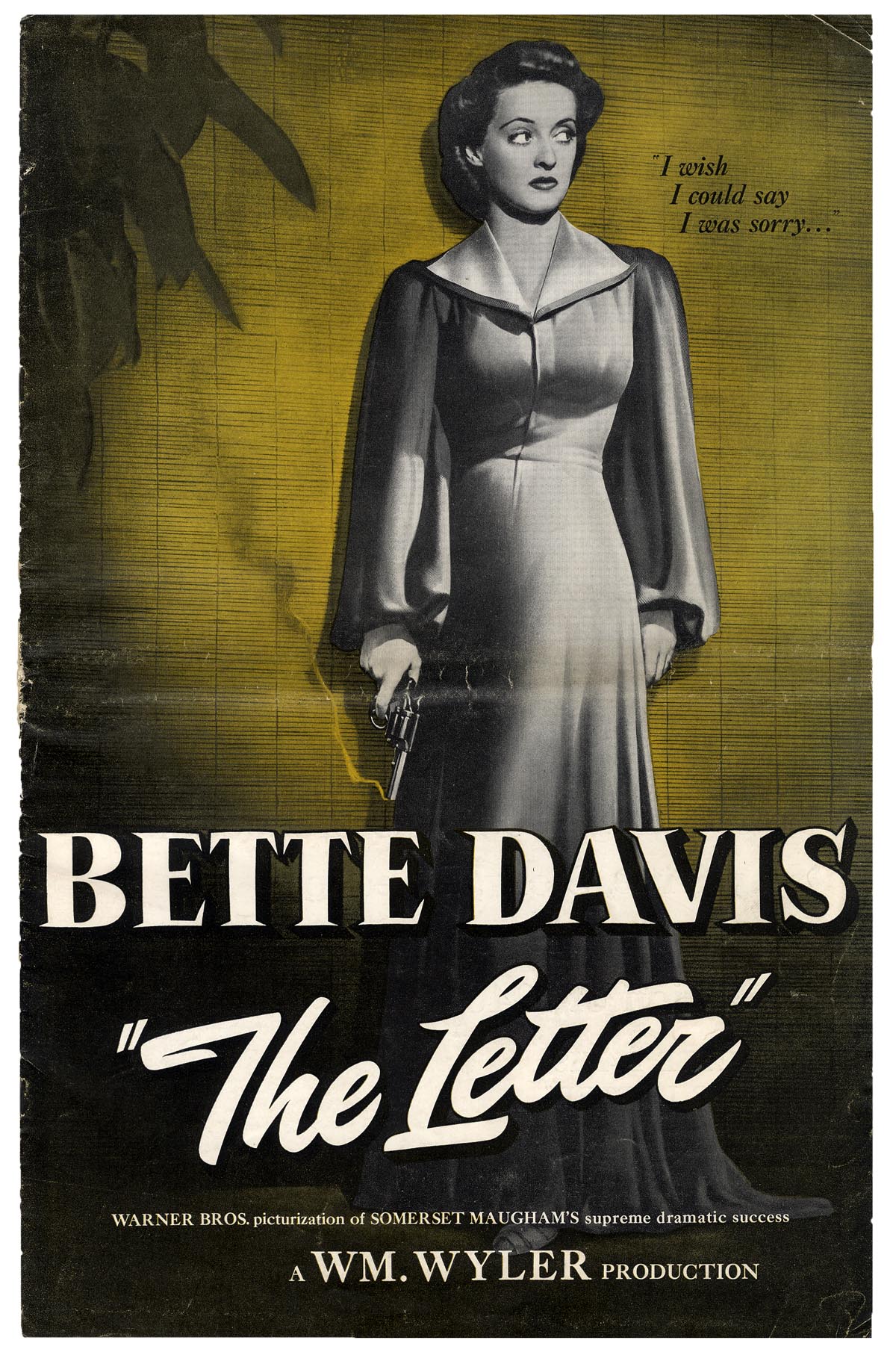The Letter 1940: A Timeless Classic That Continues To Inspire
The Letter 1940 stands as a testament to the timeless appeal of cinematic storytelling. This classic film, directed by William Wyler, has captivated audiences for generations with its intricate plot and stellar performances. Set against the backdrop of colonial Malaya, the movie delves deep into themes of betrayal, love, and justice, making it a must-watch for film enthusiasts.
Released in the golden era of Hollywood, The Letter 1940 continues to resonate with viewers even today. Its ability to tackle complex human emotions and moral dilemmas remains unparalleled, which is why it is often regarded as one of the greatest films of its time. The film's enduring legacy lies not only in its narrative but also in its technical brilliance and character development.
As we explore the world of The Letter 1940, this article will take you on a journey through its history, production, key characters, themes, and its lasting impact on cinema. Whether you're a die-hard fan or simply curious about what makes this film so special, there's something here for everyone. So, let's dive in and uncover the magic of The Letter 1940.
Read also:Ben Crowley Cinemorgue The Ultimate Guide To His Career And Legacy
Table of Contents
- Background of The Letter 1940
- The Production Process
- Key Characters and Cast
- Exploring the Themes
- The Film's Impact on Cinema
- Awards and Recognition
- Critical Reception
- The Role of Music in The Letter
- Filming Locations
- Legacy and Influence
Background of The Letter 1940
The Letter 1940 is an adaptation of W. Somerset Maugham's short story, "The Letter," which was first published in 1927. The story revolves around Leslie Crosbie, a plantation owner's wife in colonial Malaya, who is accused of murder. Her life unravels as she fights to save herself from the consequences of her actions. The film's rich narrative and psychological depth have made it a favorite among critics and audiences alike.
Set against the lush backdrop of Malaya, the film captures the tension between colonial rulers and the local population, adding layers of complexity to the story. The screenplay, written by Howard Koch, stays true to the original story while enhancing its dramatic elements to suit the cinematic medium.
The Intricate Storyline
The plot of The Letter 1940 is both gripping and thought-provoking. It explores the moral dilemmas faced by its characters and challenges the audience to question their own beliefs about justice and morality. The film's ability to weave together personal drama with broader social issues is one of its standout features.
- Leslie Crosbie, played by Bette Davis, is the central character whose life takes a dramatic turn.
- Her husband Robert Crosbie, portrayed by Herbert Marshall, struggles to come to terms with his wife's actions.
- Victor Linden, the lawyer defending Leslie, adds another layer of intrigue to the story.
The Production Process
The making of The Letter 1940 was a meticulous process that involved some of the best talents in the industry. Directed by William Wyler, the film benefited from his keen eye for detail and his ability to extract powerful performances from his actors. The production design, cinematography, and sound were all crafted to perfection, contributing to the film's overall success.
Casting the Perfect Ensemble
Selecting the right cast was crucial for bringing the story to life. Bette Davis, known for her strong screen presence, was a natural choice for the role of Leslie Crosbie. Her portrayal of a woman caught in a web of lies and deceit earned her critical acclaim. Herbert Marshall and James Stephenson rounded off the cast with their nuanced performances.
Read also:Stream Brooklyn 99 A Comprehensive Guide To Watching Your Favorite Comedy
Data from the American Film Institute (AFI) highlights the significance of casting decisions in determining a film's success. According to AFI, films with well-cast actors tend to perform better both critically and commercially.
Key Characters and Cast
The Letter 1940 boasts an impressive ensemble of characters, each contributing to the film's depth and complexity. Below is a brief overview of the main characters and their roles:
Leslie Crosbie
Played by Bette Davis, Leslie is the central character whose actions drive the plot forward. Her transformation from a confident plantation owner's wife to a woman on trial for murder is both compelling and tragic.
Robert Crosbie
Herbert Marshall plays Robert, Leslie's husband, who finds himself torn between love and duty. His character adds emotional depth to the story, highlighting the complexities of marital relationships.
Exploring the Themes
The Letter 1940 is rich in themes that continue to resonate with audiences today. Among the most prominent themes are betrayal, love, justice, and the clash of cultures in a colonial setting. These themes are explored through the characters' actions and interactions, making the film a thought-provoking experience.
Colonialism and Its Impact
The film sheds light on the impact of colonialism on both the colonizers and the colonized. It portrays the tensions between the British settlers and the local population, highlighting the power dynamics at play. This aspect of the film adds a historical dimension to its narrative.
The Film's Impact on Cinema
Since its release, The Letter 1940 has had a significant impact on the world of cinema. It set new standards for storytelling and character development, influencing countless filmmakers in the process. The film's ability to tackle complex themes while maintaining audience engagement has made it a benchmark for cinematic excellence.
According to data from the Library of Congress, The Letter 1940 is one of the most preserved films from its era, underscoring its cultural significance.
Awards and Recognition
The Letter 1940 received widespread recognition for its outstanding quality. It was nominated for multiple Academy Awards, including Best Picture, Best Director, and Best Actress. Although it did not win in the major categories, the film's nominations were a testament to its excellence.
Critical Acclaim
Critics praised the film for its compelling narrative, stellar performances, and technical brilliance. Renowned film critic Roger Ebert described it as "a film that stands the test of time, offering viewers a glimpse into the human condition through the lens of colonial Malaya."
Critical Reception
While The Letter 1940 was widely acclaimed, it also faced some criticism. Some reviewers felt that the film's portrayal of colonial life was overly romanticized and did not fully capture the harsh realities of the time. However, most agreed that its strengths far outweighed its weaknesses.
The Role of Music in The Letter
Music plays a crucial role in setting the mood and enhancing the emotional impact of The Letter 1940. The film's score, composed by Max Steiner, is both evocative and memorable. It complements the visuals and dialogue, creating a seamless auditory experience for the audience.
Soundtrack Highlights
- The opening theme establishes the film's tone with its haunting melody.
- Key scenes are underscored with music that heightens the emotional tension.
- The finale features a powerful crescendo that leaves a lasting impression.
Filming Locations
The Letter 1940 was filmed primarily in Hollywood, with sets designed to replicate the landscapes of colonial Malaya. The attention to detail in the production design ensured that the film's setting was as authentic as possible, even though it was shot on a studio lot.
Set Design and Authenticity
The set designers worked tirelessly to recreate the atmosphere of Malaya, using props, costumes, and backdrops that reflected the period accurately. Their efforts paid off, as the film's visual authenticity was praised by critics and audiences alike.
Legacy and Influence
The legacy of The Letter 1940 extends far beyond its initial release. It has inspired numerous filmmakers and continues to be studied in film schools around the world. Its influence can be seen in modern films that tackle similar themes of betrayal, love, and justice.
As we look back on The Letter 1940, it becomes clear that its appeal lies in its ability to connect with audiences on a deeply emotional level. The film's exploration of universal themes ensures that it will remain relevant for generations to come.
Conclusion
In conclusion, The Letter 1940 is a cinematic masterpiece that deserves its place in the annals of film history. From its compelling storyline to its stellar performances, the film offers viewers a rich and rewarding experience. Its exploration of complex themes and its technical brilliance set it apart from other films of its era.
We invite you to share your thoughts on The Letter 1940 in the comments below. What aspects of the film resonated with you the most? Do you have a favorite scene or character? Let us know, and don't forget to explore more articles on our site for further insights into the world of cinema.
Magic TV Shows: A Captivating Journey Into The World Of Illusion
The Innocents 1961: A Timeless Masterpiece Of Psychological Horror
Ahn So Hee: The Rising Star In The Entertainment Industry


